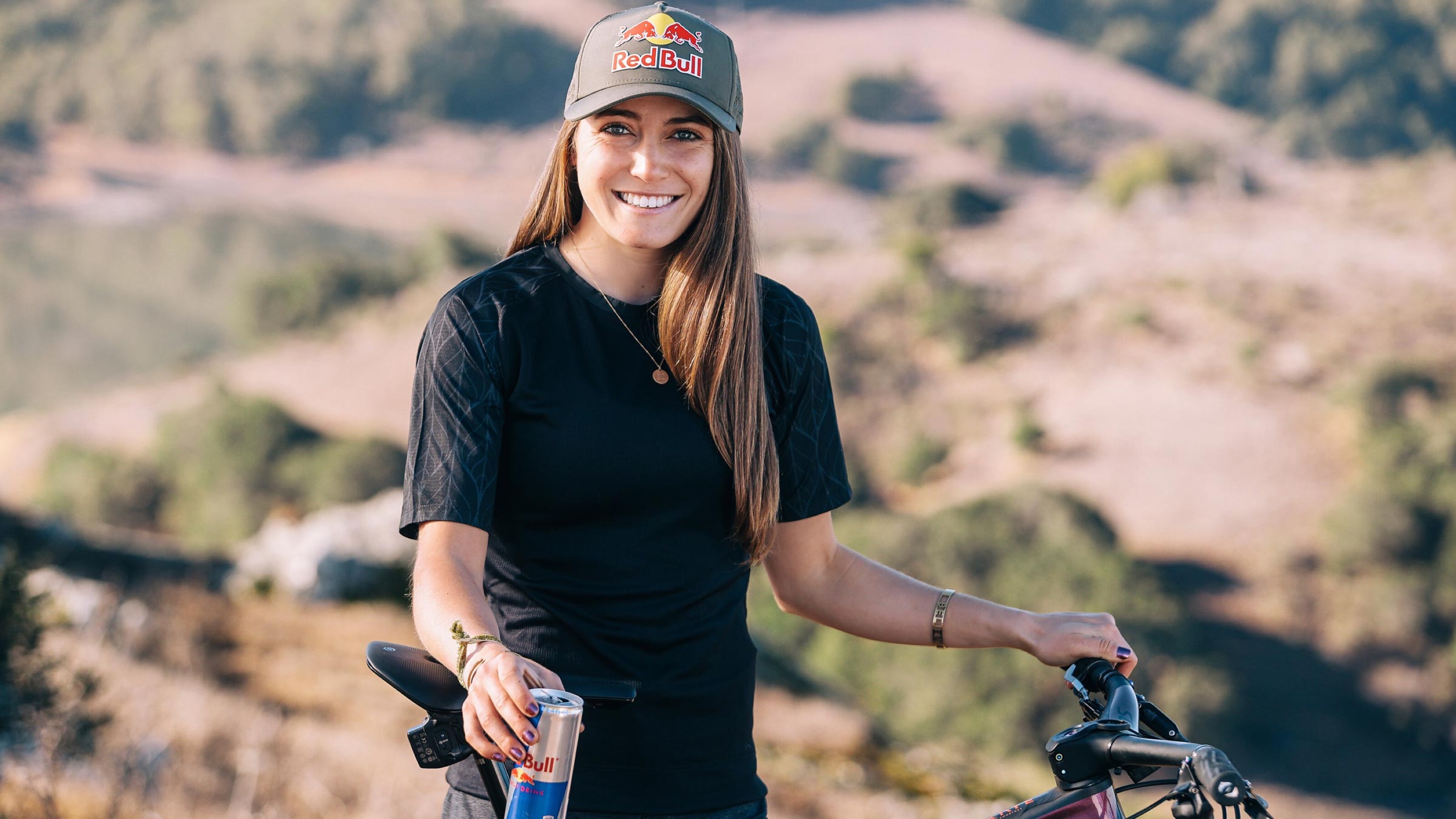
Videos
Kate Courtney trains harder than you.
With a cross-country World Championship and overall World Cup title already in the bag, Kate Courtney is rightly viewed as one of the world’s best mountain bike riders.
But the 25-year-old is only just getting started and has created the ultimate home backyard training set-up to help her add to her already significant haul of trophies.
Known as her fitness fortress, the area boasts a well-stocked gym complete, zwift set-up, ice bath and even her very own outdoor sauna.
Here is what the American had to say about her training regime, the importance of recovery and what she hopes to achieve during the 2021 race season:
What’s your first memory of cycling?
My first vivid cycling memory is riding on the back of the tandem with my dad. We went out in the rain, there was no-one else on the mountain and the weather continued to decline. We ended up seeking shelter and we found five crumpled up dollars in my dad’s saddle bag, so we got blueberry pancakes. Of course to me that was the most epic day and for the longest time that’s what cycling was; a way to spend time with my dad, to get out and if I’m lucky, get some blueberry pancakes.
I think the connections that you form while cycling are really unique, partly because it’s a sport where you can be side by side, or on the tandem I was behind and you can talk. It's really a great way to connect with people, whether it was my parents, my brother growing up, or now some of my closest friends.
What does your typical training regime look like?
I would say my lowest weeks are 15 to 17 hours on the bike and my biggest weeks are 25 to 30 hours, but those are rarer. I consider strength training part of my fitness training and I spend anywhere from two to six hours a week in the gym. I trained a lot more volume last year, as I didn’t travel much and did 20 to 25 hour a week of training, every week.
I approach it on a two-year cycle and last year was what we referred to as a development year, which also changes this year quite a bit and that for me is quite exciting. I think it’s producing different results and I’m definitely coming into this second year approaching Tokyo more rested physically and mentally.
The focus this spring is on the high-intensity, knife-sharpening race prep, which is my typical race build up; you do base, you have to do moderate training, then I start in spring to do intensity and for me that’s in the form of training camps.
I just got back from Malibu where we did ‘Mali-Boot Camp’ with three of my old team-mates. We design these camps to really push me and help me progress towards racing, then training gets a bit more intensity-and recovery-focused once we hit the race season.
I do yoga, I do mobility work, I work with a PT and do a lot of recovery activities outside of training like foam rolling, ice baths and saunas. And number one – very good sleep!
How important is recovery in the training process?
I think that’s the frontier of sports performance right now. If you are always going at 75 to 90 percent of max, you never recover, but you also never hit that 100 percent. It’s about using your motivation and your skills at planning and resting to maximise those important sessions and avoiding those medium-effort, medium-motivation which burn you out in the long run.
Do you find it hard to switch off on your rest days?
I’m working on it! I’m proud of this year; I’ve taken more complete rest days and that’s something that I used to not do. I use Whoop to track my recovery and every day that I take as a complete rest, the next day I’m in the green, so it definitely works.
It’s a challenge for me managing how much I do on these rest days, because I have to do something during and I think my dog has been my secret weapon! I’ll take him for a walk, I’ll take him to the beach; I’ve done something, but it’s quite relaxing.
What about the mental side of fitness and health – do you train that?
Definitely! I work with a sports psychologist and I have for the past five years. I personally think that the mental game is a huge part of success, but it’s also a huge part of just being a healthy, happy person in the long run. I think that dealing with situations and emotions requires certain skills and perspectives that need to be developed and for me that’s done through sports psychology, plus reading, journalling and all of those kinds of things where I give myself space and time.
Read the full interview HERE.
